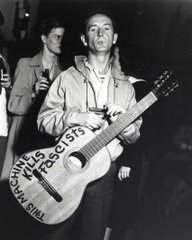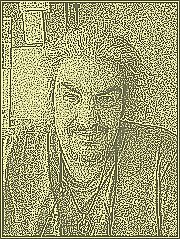Mr. Wizard Gives a Last Interview
Mr. Wizard Gives a Last Interview
Hardly ever missed a show when I was a young pup.
Don Herbert was known to his fans as Mr. Wizard, star of the Watch Mr. Wizard show. Long before Mythbusters, Herbert made common household items seem magical every Saturday at noon on NBC, from 1951 to 1964.
Herbert died on Tuesday after a long struggle with multiple myeloma, the Los Angeles Times reported. His legacy is the thousands of children he inspired to get involved in science. Many of them, myself included, are practicing scientists today.
An Air Force veteran and former actor, Herbert revived the show once in 1971, and again on Nickelodeon from 1983 to 1990. By then he had created a bank of shows that he released on DVD in 2004.
The Mr. Wizard show made a long-term cultural impact, engendering parodies including "Ask Mr. Lizard!" on the TV cartoon Dinosaurs, "Ask Mr. Stupid" on the '90s cartoon The Ren and Stimpy Show", and "Ask Dr. Science!" on the public radio comedy Duck's Breath Mystery Theater.
Herbert was interviewed by Wired News in May through e-mail with help from his son-in-law, Thomas Nikosey. Nikosey took over as president of Mr. Wizard Studios five years ago.
WN: What was the highlight of your career?
Herbert: One of the many highlights was realizing the tremendous effect the Watch Mr. Wizard show had on the mass national audience. After all, we did not tape in front of an audience and the early years were live, kinescope, shows. We didn't get instant feedback.
WN: What advice would you give to the makers of science television programming?
Herbert: Science is about the real world around us and it's filled with fascinating wonders.
WN: Is there any one household item or chemical that you think is particularly amazing?
Herbert: There are several: bleach, vinegar, ammonia, baking soda, straws, paper, scissors, etc. I authored a book titled Mr. Wizard's Supermarket Science that deals with this very question.
WN: You began to include girls in your show quite early on. Female scientists are beginning to outnumber male scientists in some areas. Can you comment on what led you to be so far ahead of your time?
Herbert: Looking back it certainly was a major contributing factor to the show's longevity and success. The girls were terrific!
WN: What would you consider to be the most memorable moments from your shows?
Herbert: The shows that presented surprises to both me and the kids.
WN: You must have a lot of stories about people that have thanked you for turning them on to science. Can you share some of your favorites?
Herbert: There have been so many over the years: doctors, scientists, engineers, science teachers, science reporters, on-air science T.V. personalities. Actually, I feel very fortunate that I was able to spark an interest in so many lives.
WN: Do you think that excessive concerns about safety detract from the value of modern chemistry sets and educational toys?
Herbert: To some degree, but safety is paramount. We stressed safety and parental guidance very emphatically all during the shows and on our products.
WN: Was getting the show started difficult, and how did you plan episodes and produce them?
Herbert: There were many rejections and rewrites, but perseverance prevailed and a producer, Charles Power, took a chance on it.
WN: What do you think are the greatest issues facing science education today?
Herbert: So many entertainment distractions.
WN: Are there any current science shows that you find particularly educational or entertaining?
Herbert: The Discovery Science Channel.
WN: Do you think that you were an inspiration for the science programming that has become very popular on the Discovery Channel?
Herbert: Maybe.
WN: What do you think of computer games?
Herbert: Computer solitaire was one of my favorites.
WN: What became of the kids who helped you on the TV show?
Herbert: There were several kids over the years. Some have passed away, some stay in touch. Rita McLaughlin, who appeared in many of the Watch Mr. Wizard series, had dinner with my wife Norma and I in New York City in 2002 while we were in for the 75th Anniversary of NBC.
Wired News: What advice would you give to the next generation of science educators?
Herbert: To keep a hands-on approach to teaching science and always keep the student involved.





No comments:
Post a Comment